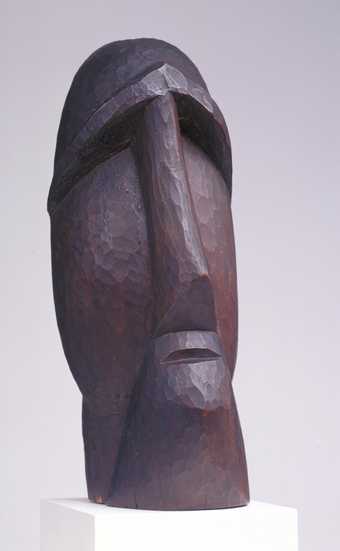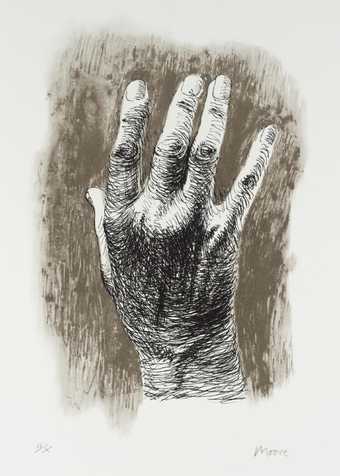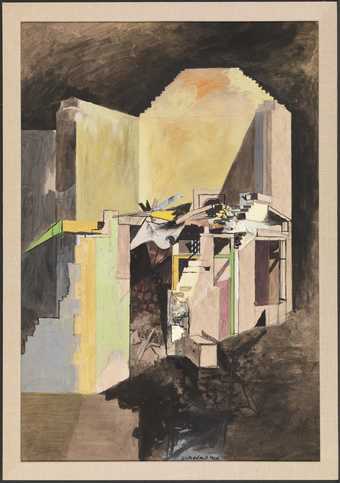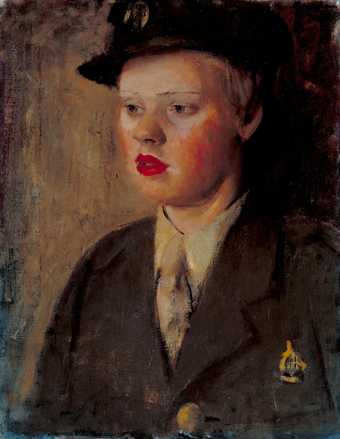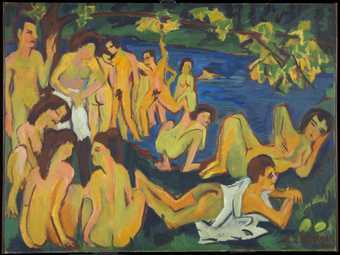
Ernst Ludwig Kirchner
Bathers at Moritzburg (1909–26)
Tate
Brücke means bridge and may have been intended to convey the idea of a bridge between the artist and society at large. Also, Brücke recruited members who were not artists but patrons, paying a subscription entitling them to an annual portfolio of prints (one of these was Rosa Schapire). The name may therefore also refer to this direct bridge between artist and patron.
The manifesto of 1906 stated ‘we want to achieve freedom of life and action against the well established older forces’. In art this freedom involved blending elements of old German art and African and South Pacific tribal art, with post-impressionism and fauvism to create a distinctive modern style. In life they sought a return to a more direct relationship with nature (another bridge). This is vividly expressed in their pictures of themselves bathing nude in the lakes near Dresden.
Chief artists were Ernst Ludwig Kirchner, Karl Schmidt-Rottluff, Bleyl and Heckel, joined in 1910 by Otto Müller. Emil Nolde was also briefly a member.

